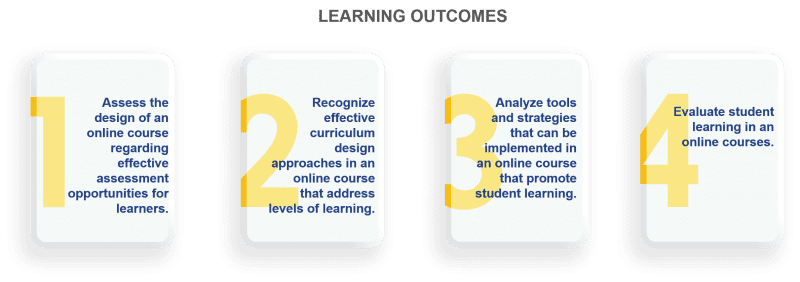This course covers practice and theory for assessing learning in an online course. The course reviews course/instructional design practices that allow for optimal student learning and assessment opportunities, presents tools and strategies to promote student learning, and provides best practices for assessing demonstration of student learning in an online course.

This course will take you approximately 16 hours to complete. A learner who explores the material in more depth will take approximately 21 hours and a learner who skims the course content will take 8 hours.



